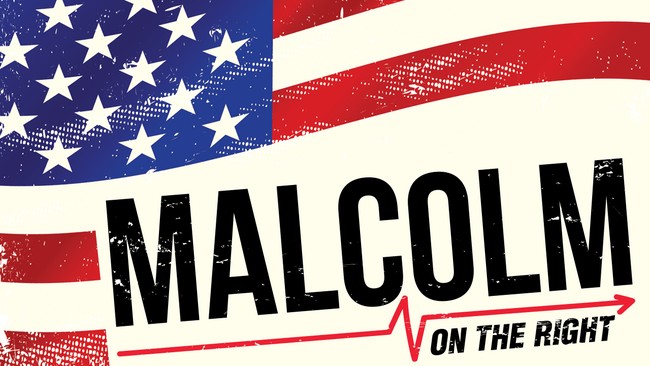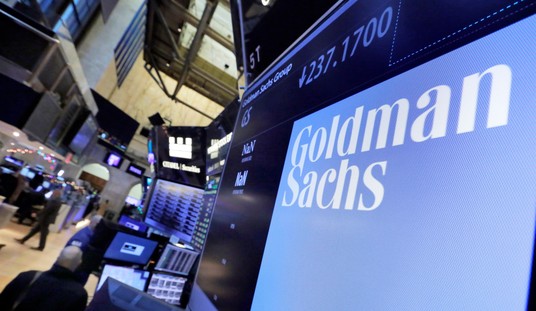United States President Donald J. Trump did not win the Nobel Peace Prize on Friday when he well could have.
Barack Obama won the Nobel Peace Prize in 2009 when he damn well should not have.
There are reasons for both events, which I'll explain. But first, why does anyone care about these self-congratulatory things anyway? I’m not sure they really do as anything more than news popcorn.
Media certainly cares. Their main job these days is to tell us what to talk about. Not because it necessarily matters, but because their business is to assemble crowds online and TV. And advertisers pay a lot of money to access those crowds.
Media failed to tell us that the last president had literally lost his mind. That was important. But Democrats did not want it talked about. So, media colluded to hide it. Only honest news outlets like RedState chronicled the unfolding scandal that endangered the nation.
News media, however, are really good at covering anything that gets announced. That’s easy work: Nobel Prizes. Oscars. Golden Globes. Sports scores. Grammys. Monthly job reports. They can set up for that. Cover it and then run around and ask select people what they think. Maybe stir up another crowd if it’s controversial.
And this Nobel Peace Prize certainly was.
Not because of who got it. Maria Corina Machado did. She’s an opposition leader to the dictatorship of Venezuelan dictator Nicolás Maduro, the guy whose drug runners keep getting vaporized at sea in Trump’s new armed war against drug cartels.
Hard to argue against that pick since Machado is forced to hide from her own government.
She even graciously dedicated her prize to President Trump for his strong support of Venezuela’s freedom movement — a pretty special international honor by itself. But media won't cover that either.
Trump later said he had a “very nice” phone conversation with the winner.
This president doesn’t need the million-dollar prize money. But it’s also hard to argue that Trump does not deserve such prestigious Nobel recognition.
In his short nine months in office, Trump has been a tropical storm of activity, including helping to end seven foreign conflicts, most recently the two-year Gaza conflict started by Hamas’ deadly terrorist attack. And before that came his historic Abraham Accords.
The technical reason he did not receive the 2025 Nobel Peace Prize is that the deadline for nominations was Jan. 31, just 11 days after he took office. Trump will be eligible next year, assuming supporters like Prime Minister Netanyahu nominate him by Jan. 31, 2026.
A creative detour the Nobel committee could take next year is to award the peace prize to Melania Trump. Or maybe both Trumps. She’s been communicating quietly with Russian President Vladimir Putin to reunite Ukrainian children with their war-zone families.
The first lady’s goal might be unachievable since Putin would be admitting he’s kidnapped and taken to Russia thousands of them for adoption and absorption. Her humanitarian attempt remains admirable.
But wait! There’s more. And it sullies the Nobel award process badly. The same January 31st deadline held true in 2009 when Obama had been in office only 11 days. And yet Obama still got the 2009 Nobel Peace Prize.
So, what’s going on?
As you may recall, Obama was black. He still is — the first African American U.S. president.
He had been just an ordinary Illinois state senator, a product of the corrupt Chicago political machine with dozens of outstanding traffic and parking tickets. But he still set his sights on a U.S. Senate seat.
In November of 2004, Obama defeated Alan Keyes with 70 percent of the vote. Remember Keyes? A conservative activist and former foreign service officer, he is also black.
He offered to run against Obama when the original Republican Senate candidate was forced to drop out after messy divorce documents, officially sealed by a court, somehow got unsealed and given to media. This cleared the path for Obama.
Keyes often showed up at televised GOP presidential debates claiming he was a candidate. At one of those in Iowa in 2000, I asked him why he did that. He leaned toward me and said, “It jacks up my speaking fees for the next two years.”
After that gimme election win, Obama rode into the U.S. Senate, Democrats’ favorite spawning ground for presidential and vice-presidential candidates. He immediately began plotting to move on with a campaign for the party's 2008 presidential nomination.
Obama won that, the election, and the Oval Office on a wave of Hope.
Remember that Hope poster, Obama looking up as if to a heavenly voice? It was actually lifted from an AP photo of him ever so earnestly listening to a talk on Sudan by George Clooney, who would become a Democrat fundraiser.
The Warhol case is bringing up my Shepard Fairey HOPE poster PTSD.
— Rebecca Schoenkopf, Wonkette. (@commiegirl1) May 19, 2023
THE HOPE POSTER WAS A COMPLETELY DIFFERENT ANGLE. THE PHOTOGRAPHER WAS TRYING TO COPYRIGHT THE ENTIRE SHAPE OF BARACK OBAMA'S HEAD. pic.twitter.com/th5Z41bT51
The Obama-Biden ticket got 365 electoral votes to 173 for the GOP’s pairing of John McCain-Sarah Palin.
Obama took office on Jan. 20, 2009. The Nobel Peace Prize nomination deadline was 11 days later. In that time, Obama’s work included signing an executive order to close the Guantanamo Bay Detention Facility for terrorists.
It’s still open.
How in the wide world of bogus awards did Barack Obama ever qualify for the once-prestigious Nobel Peace Prize without having done anything to earn it?

In 2008, allegedly the period Nobel judges would have used to evaluate Obama, he was campaigning full-time all year.
At every opportunity, he excoriated his primary opponent, Hillary Clinton, who miraculously recovered from all her faults sufficient to become his Secretary of State. A freelance reporter caught Obama on tape privately criticizing Pennsylvania voters as “bitter, they cling to guns or religion or antipathy to people who aren't like them.”
And the man who spent his formative childhood years in a Muslim Indonesian home bragged to an Oregon audience that he had already visited 57 states.
In 2009, the new president launched his foreign apology tour, causing critics to compile Obama’s Top 10 Apologies for the many faults of the country that had just generously elected on faith the political neophyte as their first black commander in chief.
Using the new president’s own words, Karl Rove demolished that lame Obama attempt to curry foreign praise for himself:
President Barack Obama has finished the second leg of his international confession tour. In less than 100 days, he has apologized on three continents for what he views as the sins of America and his predecessors.
Turns out, that ploy seems to have worked, as Nobel Peace Prize committee members took it upon themselves to give him the prize based on – wait for it – Hope. The first black president seemed so promising to them at the time.
Geir Lundestad, the prize committee’s longtime secretary, admitted years later that Obama’s peace award was aspirational, based on the man’s speeches, not accomplishments:
No Nobel Peace Prize ever elicited more attention than the 2009 prize to Barack Obama. Even many of Obama's supporters believed the prize was a mistake. In that sense the committee didn't achieve what it had hoped for.
It was a mistake roundly mocked in the U.S. One New Hampshire restaurant erected a roadside sign: “Free Nobel Peace Prize with an order of Shrimp Tacos.”
Still, Obama flew to Oslo to accept it, donating the prize to charity.
So, let’s see how the peace prize winner lived up to the peace committee’s hopes: In 2011, without informing Congress, Obama ordered U.S. naval forces to join a European military effort to oust Libyan leader Moammar Gaddafi.
The same countries had previously promised to leave Libya alone if it gave up its nuclear weapons program, which Gaddafi did in 2003. (So, it appears a diplomatic double-cross by Russia breaking its promise to respect Ukraine’s sovereignty is bad. But a double-cross by the West is O.K.)
Seven months later, a mob caught Gaddafi hiding in a culvert and killed him. Which Clinton notoriously described as: “We came. We saw. He died.”
As a direct result of that armed regime change, Libya became and remains a lawless state where terrorist militias, including remnants of ISIS and al-Qaeda, feud and train to infiltrate Africa.
The next year, during the infamous Benghazi incident, one of those groups murdered four Americans during the night when the commander in chief disappeared for 16 hours without explanation. No rescue efforts were attempted.
During the two terms of peace-prize winner Obama, he ordered bombings on at least seven countries and authorized 542 lethal drone strikes, that we know of, killing an estimated 3,797 people, including 324 civilians.
For those who weren’t alive in the 1800s, Alfred Nobel, a Swede, did not invent blowing people up. He invented a safer way of blowing things up. He was a student of Italian chemist Ascanio Sobrero, the 1847 inventor of nitroglycerine, a highly volatile and unstable explosive.
In 1867, Nobel stabilized and commercialized it with the invention of dynamite. He patented that compound and other uses, including as a heart medication.
Nobel died in 1896, leaving the bulk of his fortune to endowments for six categories of annual prizes: physics, chemistry, medicine/physiology, economics, literature, and peace.
The prizes began in 1901. Due to mostly violent wars and lack of qualified candidates, the peace prize has been awarded only 106 times to 112 individuals and 31 organizations.
Besides Obama, the Nobel Peace Prize has gone to two other presidents so far, Jimmy Carter (2002) for a career of peace-making negotiations and Teddy Roosevelt for mediating an end to the Russo-Japanese War (1906).
Truth is, such highly coveted prizes are all subject to the disappointing vanities and foibles of the humans who run them. The New York Times has disavowed the 1932 Pulitzer given to correspondent Walter Duranty, who covered up the horrors of Stalin’s mass murders, and asked the committee to rescind it. It refused.
Janet Cooke of the Washington Post confessed she made up a 1981 prize-winning feature on an eight-year-old drug addict. That Pulitzer went to an alternate.
Long ago, during my mainstream media days, a colleague told me that editors had assured him of a Pulitzer if he produced a string of stories on a specific topic then in the news. He did. And he won one.
Finally, we don't know if Nobel committee members have a sense of humor. But they might laugh if they saw a Financial Times cartoon the other day showing the peace prize committee chair telling members:
“Just for fun. Let’s give it to Obama again.”












